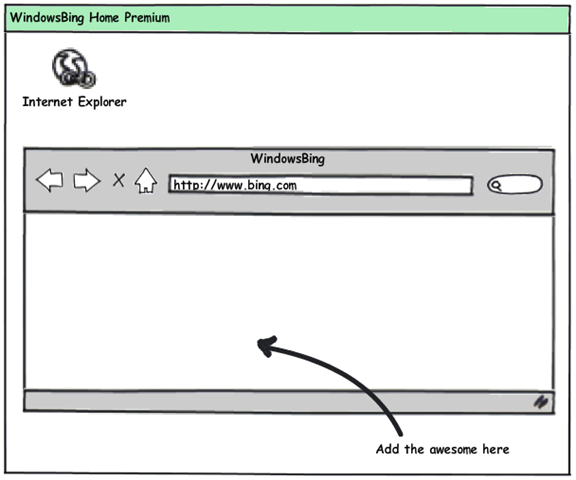Microsoft’s Response to Google’s Chrome OS
Every so often my coworkers and I have a pretty lengthy email exchange about some news item in the tech field. Today it was about Google’s Chrome Operating System announced last week. We each made some predictions about how and when it will penetrate the market. Here’s what we came up with:
![]()
Chrome will take the obvious plunge into the netbook market—that’s what it’s targeted for so this is not a brilliant insight by itself. What’s more interesting is what this can do for the credibility of netbooks. As my buddy Bryan pointed out, a fully capable netbook for the cost of an iPod (say a half or a quarter of what a laptop costs) running Chrome is very, very appealing. Such a machine would easily meet the needs of our non-tech spouses (and parents, and me when I’m not at work). I realize we have netbooks now, but I’m excited for Google to get into the market and give it some style.
I think the transition will feel slow but steady. Within five years, netbooks with a Chrome-style OS will take a huge slice of the student market. I think the business/manufacturing sector will lag about two years in this transition but it’s seems inevitable. There are clear, obvious places with all of my customers for the deployment of cheap, web enabled machines. Over the next few years, the market will mature to the point where IT shops all over the place will be buying these things like crazy. Pretty much everyone is busy replacing legacy apps with web-based solutions and the next logical step is to replace legacy hardware with cheap web-only machines.
Of course it’s hard to imagine a lightweight OS like Chrome replacing my workstation but who knows? Maybe MS will come out with a Visual Studio 2012 Cloud Edition and my ties to a traditional machine will start to break.
Anyway, after a bunch of chatter like that Josh said this:
Maybe Windows is going to have to change and free versions of Windows are in our future.
That got me thinking: what comes after Windows7? Here’s my prediction for the next-next version of Windows; let’s call it WindowsBing™, which will be just a bootable IE9 into live.com. If you’re not sure what Bing is, check out this video.
Here’s a rough mockup of what WindowsBing™ might look like (made with the ever awesome balsamiq mockups tool):

Ignoring any actual, thought provoking analysis of market trends, etc., I decided to just come up with a list of editions. MS is famous for releasing ridiculously large numbers of editions of their software. Windows7 will come in six flavors (plus six more without IE for the European Union!). The unnecessary complexity is maddening. I came up with nine:
- WindowsBing™ Free Edition (for losers) - (-$50…wtf? MS will make it up in volume!)
- WindowsBing™ Home Basic (for 386s) - $99
- WindowsBing™ Home Premium (the real version) - $199
- WindowsBing™ Business (more expensive than home premium, with fewer features - $299
- WindowsBing™ Ultimate (home premium with a better screen saver) - $399
- WindowsBing™ Enterprise NoActivation!!1 - (home premium for warez’ers) - fa-reee! (Bundled with bittorrent, may spontaneously corrupt your user-profile, ruin life)
- WindowsBing™ StarterEdition (Free edition for poor people) - ($0…poor people don’t have computers)
- WindowsBing™ EU edition (browser based OS with…no bundled browser) - €199
- WindowsBing™ J/K edition (Windows7 Mojave experiment derivative) - $199
I could probably knock out a dozen more but it’s getting pretty rough. OK, one more thanks to Jeromie: WindowsBing™ Awesome Edition.
Note: definitely *do not search google images for “bing” without safe search on. Seriously. I warned you. It’s on you, not me.